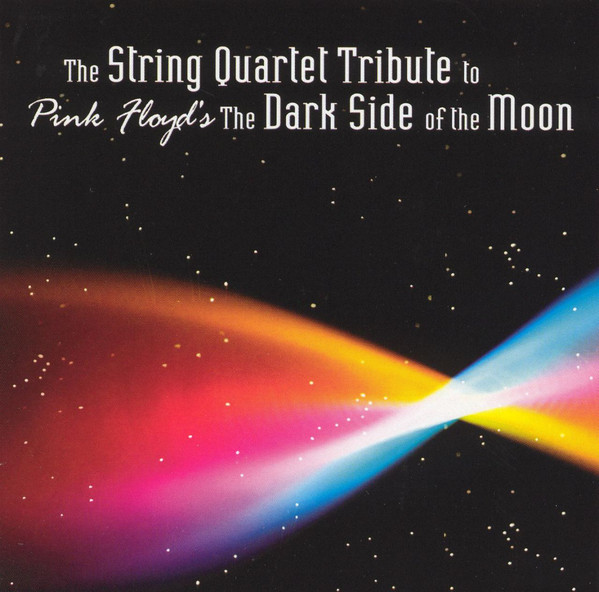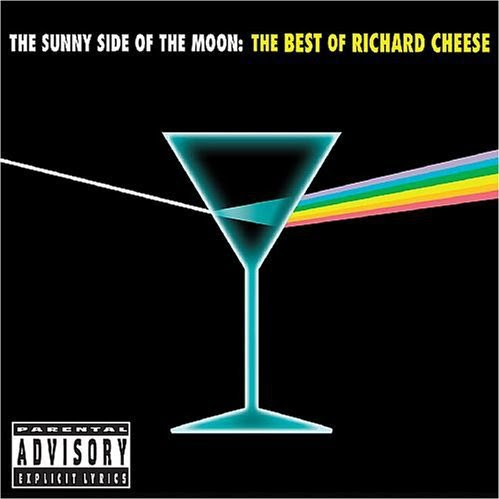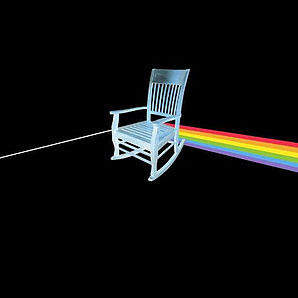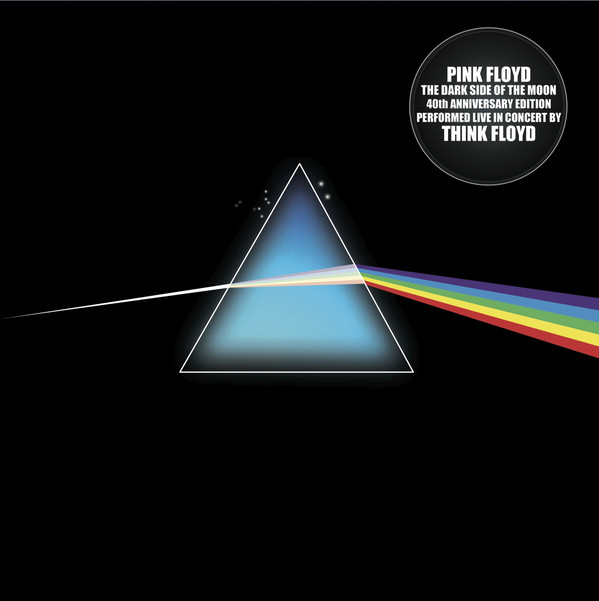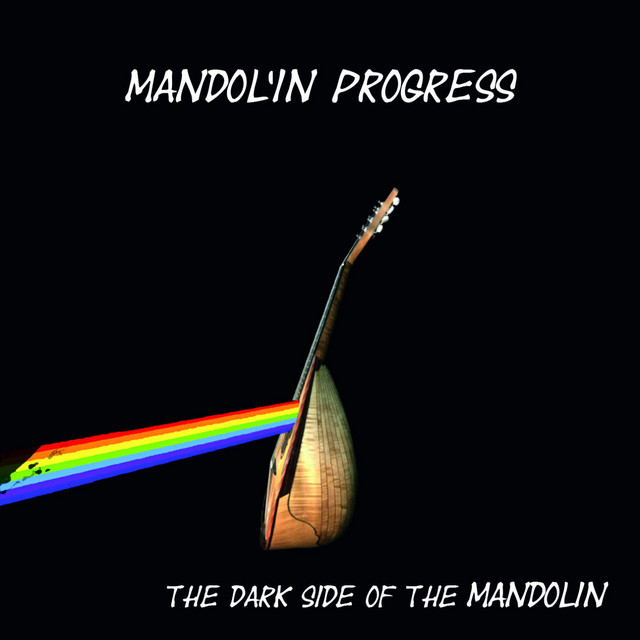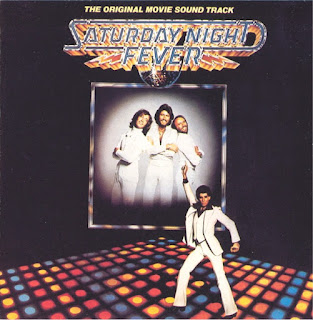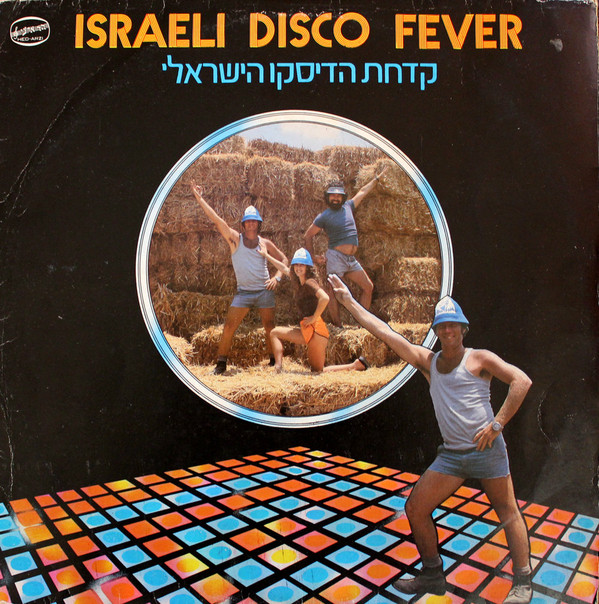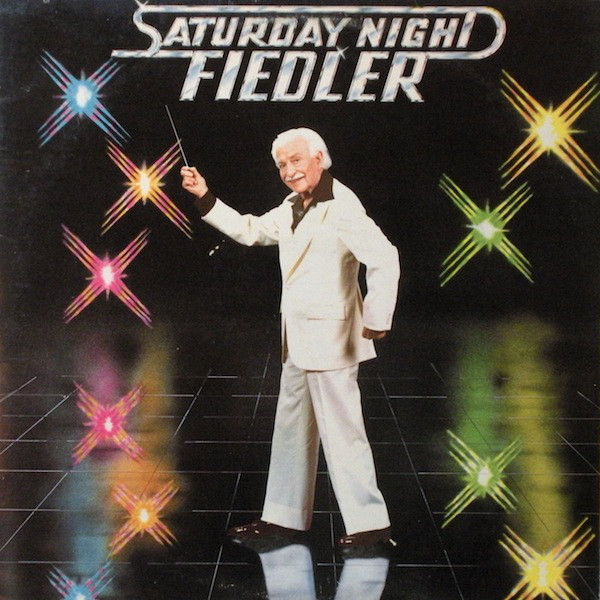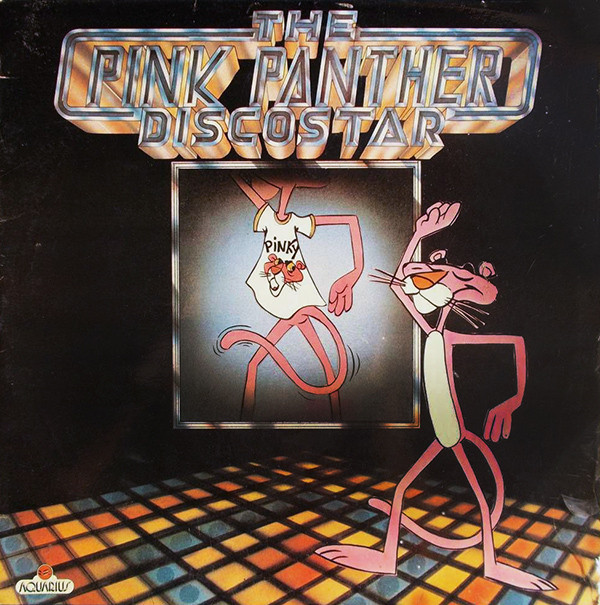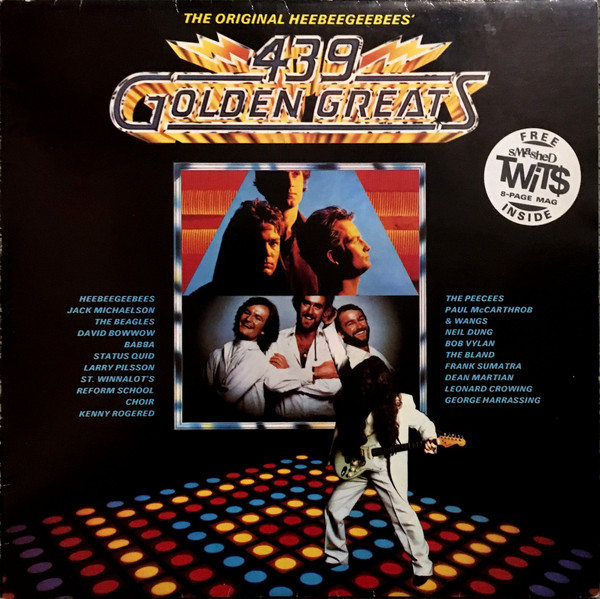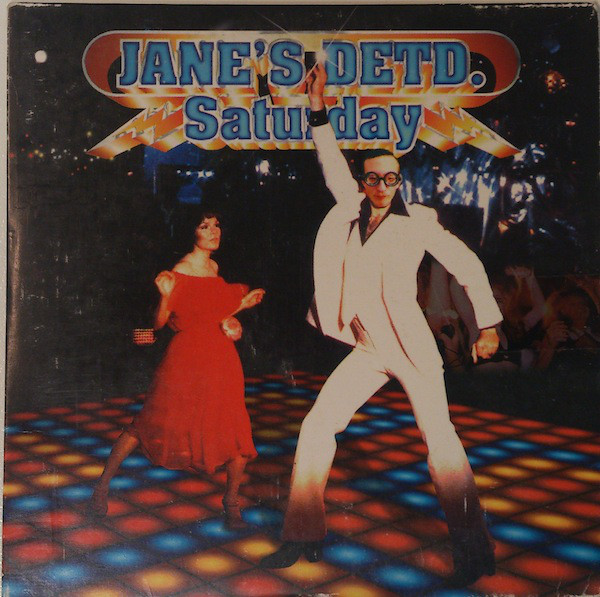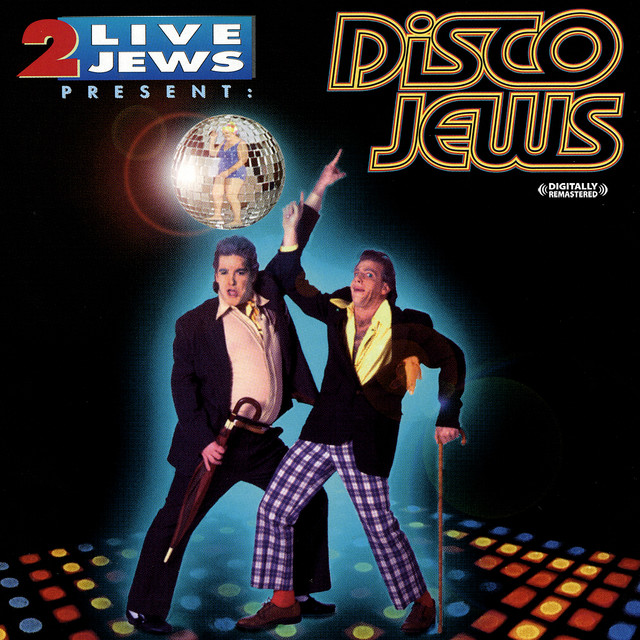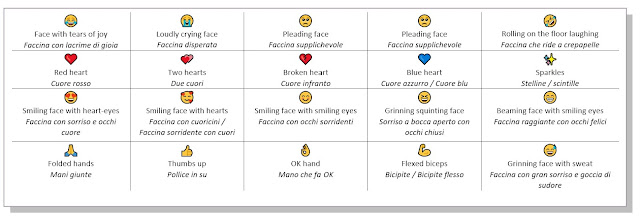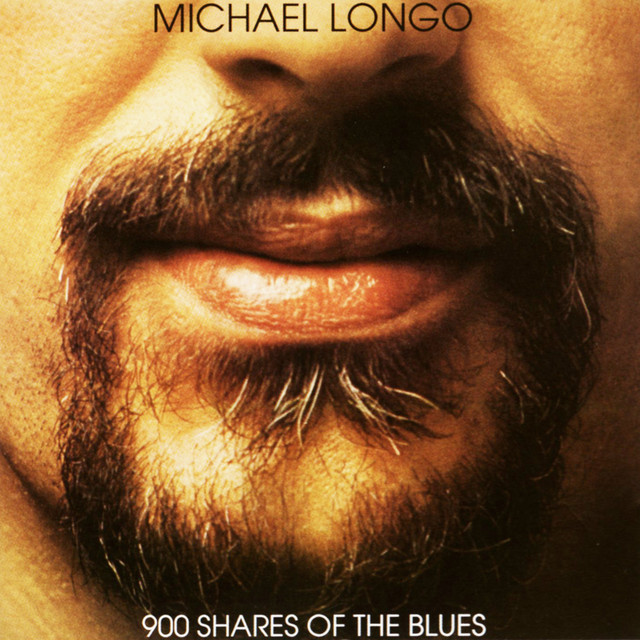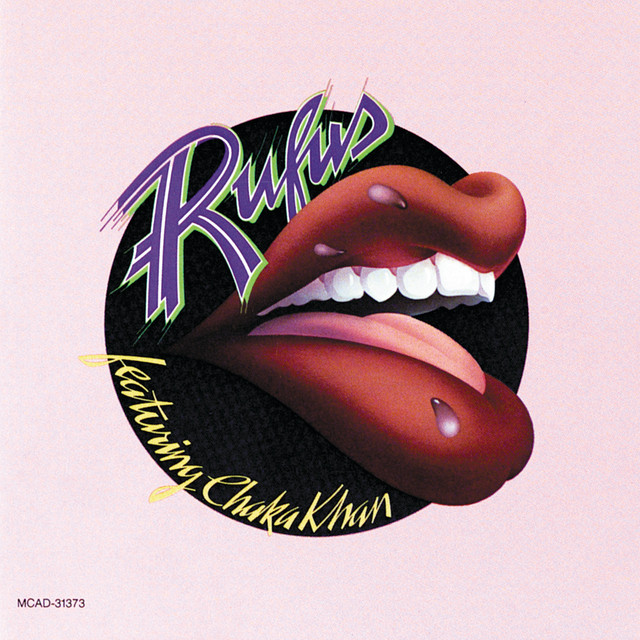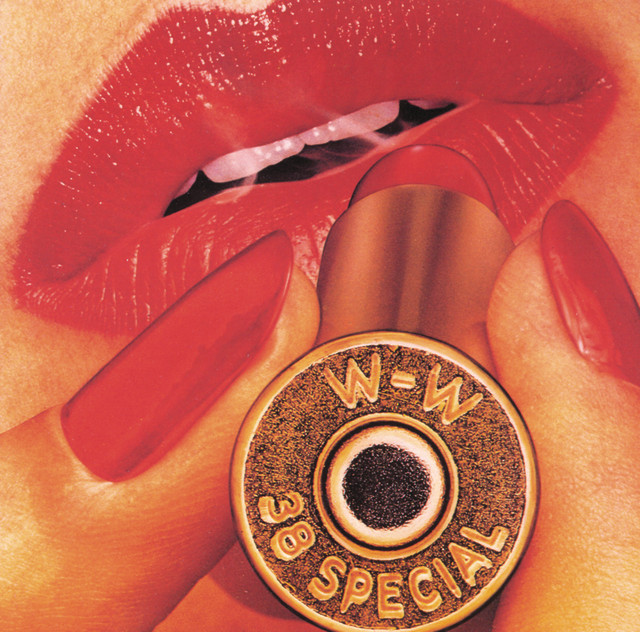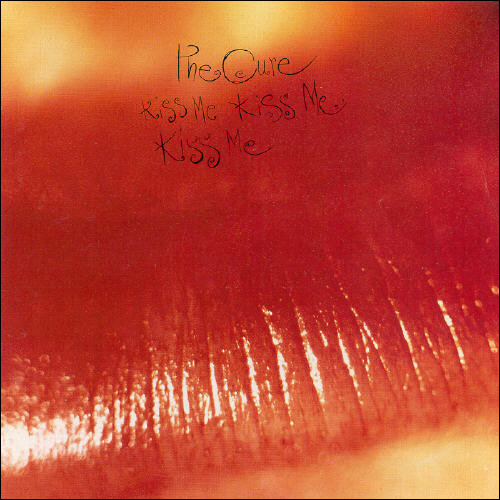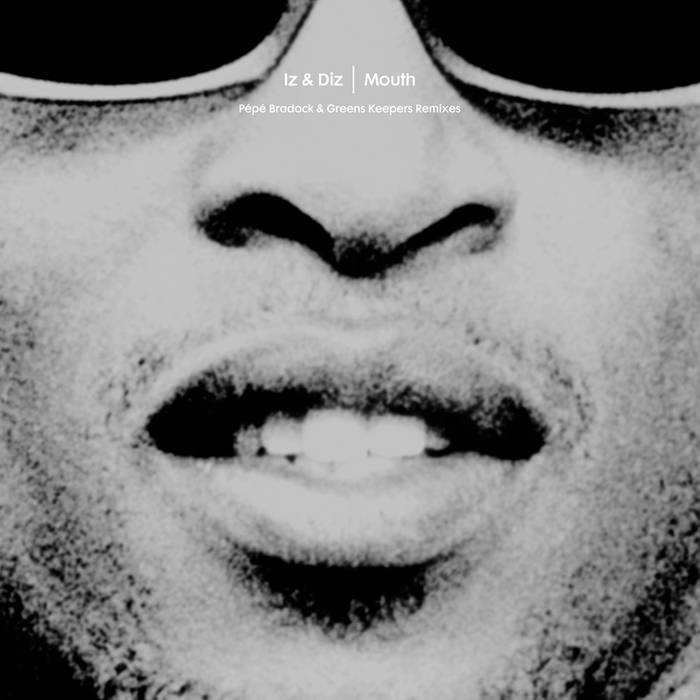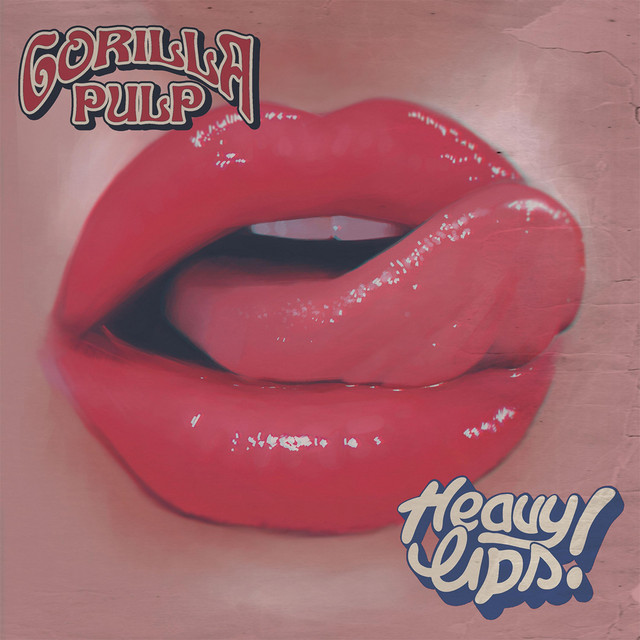What is this album?
The "Dark Side of the Moon" is the 8th studio album by Pink Floyd, released in 1973. This album is easily on the shortlist of many given the task of naming important music in their lives. The album has influenced generations of subsequent musicians, some of which are discussed in the post and specifically chose album covers parodying or paying tribute to the original cover.
Here we go again with "culturally, historically, or aesthetically significant" shtick again, but did you know that in 2013, the album was selected for preservation in the United States National Recording Registry by the Library of Congress. In a previous parody album post, we mentioned that Saturday Night Fever was also included in the registry, which couldn't be more different than Dark Side of the Moon.
What's on the cover?
The cover of "Dark Side of the Moon" depicts a dispersive prism breaking up white light into its constituent colors, the colors of the rainbow. The iconic cover art shows light entering one facet of the prism and separating into colors only after leaving the second facet, which is not correct. Light starts to disperse upon entering the first facet. Also, the dispersed light exiting the prism is missing the color indigo.
This album cover was designed by Storm Thorgeson (1944 – 2013), who designed many classic album covers including previous Pink Floyd albums.
How did we choose the albums to feature here?
We decided that the criteria for inclusion here should be that the album is mostly black and clearly shows light, whole and/or separated. Also, a good play on words was a plus. For example, consider the phrase: "ABC side of the XYZ". In the selected albums here, ABC = Dark, Dub, Darker, Dork side. And XYZ = Moonshine, Moon pie, Spoon, Goon, Mandolin, Tune. Love us a good pun.
There are many more parodies of the album cover and tributes to the album in general then we show here. In the age of mashups, there are many "invented" covers. We had to sort through a lot of creative covers that didn't represent real music. For lists, see this KnowYourMeme.com list and this AmIRight.com list.
Why did these artists choose to use this cover?
It's hard to say for sure, but it seems the albums fall into two categories. Half of the albums shown here just reference the cover and that's it. The other half reference the cover as well as feature the album's songs from start to finish – a more thorough referencing. Those that recreate the album from start to finish are:
- 2000 The Squirrels – "The Not-So-Bright Side of the Moon"
- 2001 Out of Phase – "Dark Side of the Moon – Celebrating Pink Floyd's Most Influential Album"
- 2002 Pink Fraud – "Darker Than the Moon"
- 2003 Easy Star All-Stars – "Dub Side of the Moon"
- 2003 The Vitamin String Quartet – "The String Quartet Tribute to Pink Floyd's The Dark Side of the Moon"
- 2005 Vocomotion – "Dark Side of the Moon a Cappella"
- 2006 Various – "Return to the Dark Side of the Moon: A Tribute to Pink Floyd"
- 2009 Poor Man's Whiskey – "Dark Side of the Moonshine"
- 2013 Think Floyd – "The Dark Side of the Moon - 40th Anniversary Edition"
- 2017 Mandol'in Progress – "The Dark Side of the Mandolin"
We listened to as many of these albums as possible and have to say the Poor Man's Whiskey, Mando'lin Progress, Vocomotions, and Easy Star All-Star's albums are standouts because they reinterpret the music in a very different musical paradigm than the original and still work very well.
Also of interest are these song-by-song covers of the original album, which we didn't include in our visual collage (they failed the criteria given above):
- 2009 The Flaming Lips, Stardeath and White Dwarfs – "The Dark Side of the Moon"
- 2010 Mary Fahl – "From the Dark Side of the Moon"
Also included in our collage are the 20th and 30th anniversary releases of the album by Pink Floyd, both using cover imagery evoking the original.
Finally, instead of the prism, some of the parody/tribute covers feature other objects such as a spoon, martini glass, moon pie, whiskey jug, pint of beer, mandolin, and glasses. In some cases, the choice of the object is clearly connected to the title or theme and others, it's a guess.
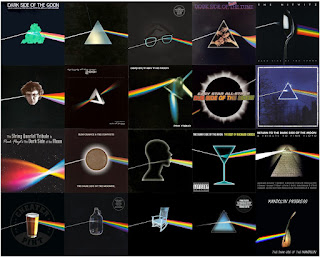
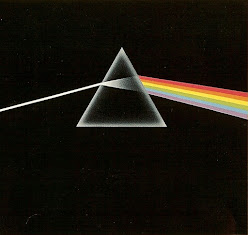
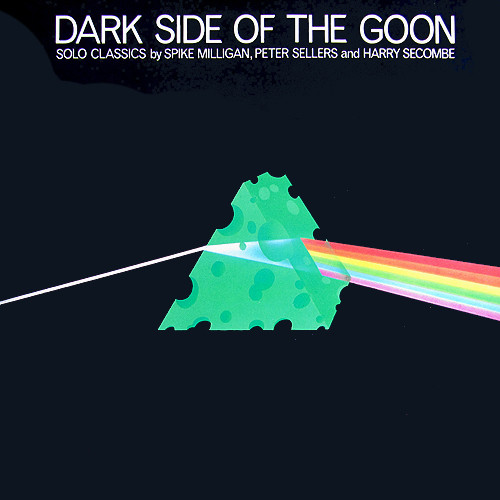
![1993 Pink Floyd - Dark Side of the Moon [20th Anniversary Edition] 1993 Pink Floyd - Dark Side of the Moon [20th Anniversary Edition]](https://blogger.googleusercontent.com/img/a/AVvXsEgehYN36RGFWhJjA7pmXW3B_5L9iO12NNl2nIYCbgniHYB-r1VnTCfz64ipSvyZtEN97-cEHwEd25ag_EC7sDv02KJzHTo_Wd18OC43_3b3jpp1MTLwWHV2fY-PlprIPrCNfnQVjAG3Bt9h0OHyxvFeIWfmlqT8XjicJO-wEYu5Ivwq-bgAQqpavAs=s500)
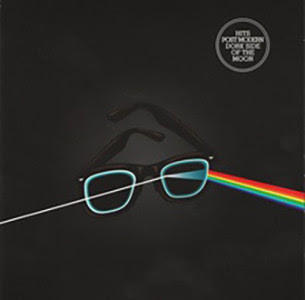
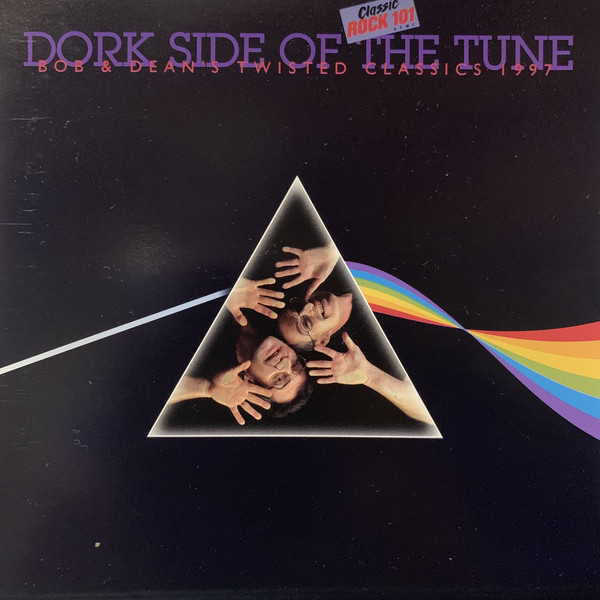
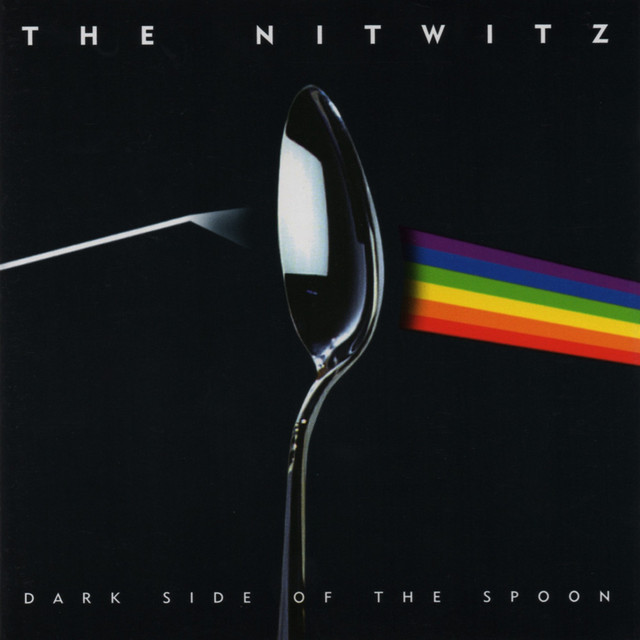

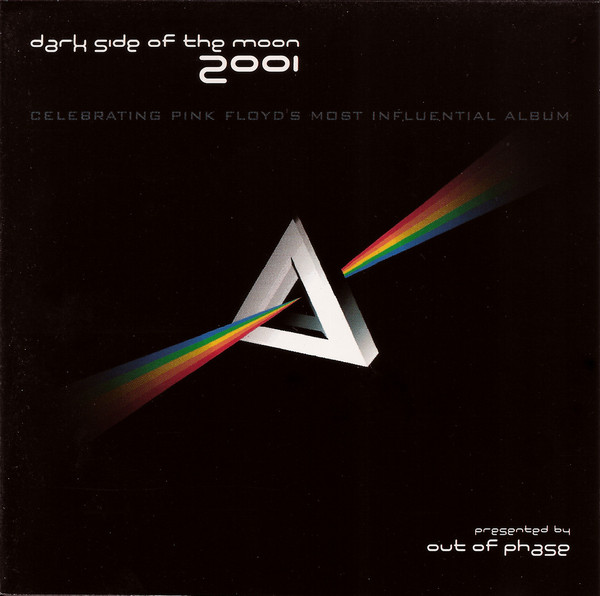


![2003 Pink Floyd - Dark Side of the Moon [30th Anniversary Edition] 2003 Pink Floyd - Dark Side of the Moon [30th Anniversary Edition]](https://blogger.googleusercontent.com/img/a/AVvXsEjOluDZcBKhV8R0Af-sr2vYePdFwwF0M_rD8N_d6F2jYZqnoDikd80AIA_wh1LSgtdsZBH4_6he5t69GpiPVHux1yPDaCBWQ3O0IYpC2jvCBFK6V2NOdlDmyV7uDkZ0zMibQ-joIWkoxfY0Il8stJIeV_VVh1PBzfSvFzbjAcEZDINVU3K1aMJbaAI=s500)
